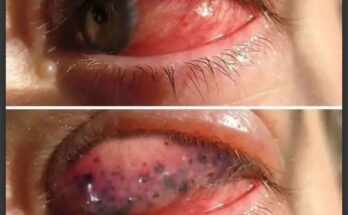Sue, you’re next to be triaged. Come on back.
Hi, my name is Tina. I’m going to be your triage nurse today. What brings you in to see us?
Well, I got in a bar fight cuz somebody was making fun of my name.
Oh. Oh, no.
And he got a couple of hits. He hit me in the back of my head, I think. And my head is just pounding.
Oof. I’m so sorry to hear that.
Is that a problem?
No, sir. Run with me.
My name is Sue. Dude, I’m sorry. I said Sue.
No worries, Sue. Let’s get you taken care of.
Sue shared her unfortunate experience of getting into a bar fight due to someone making fun of her name. As a triage nurse, my job is to assess her condition and provide the necessary care. Let’s dive into Sue’s story and see how we can help her feel better.
What symptoms are you experiencing, Sue?
My head is throbbing, and I feel dizzy. The person who hit me also punched my arm, so it’s hurting as well.
Have you noticed any blurred vision or nausea?
Yes, I’ve been feeling nauseous since the incident, and my vision seems a bit blurry at times.
Did you lose consciousness at any point?
I didn’t lose consciousness, but I felt a bit disoriented after the hit to my head.
Let’s get you checked out immediately.
After examining Sue and hearing her symptoms, it’s evident that she needs further evaluation and possibly some imaging tests to rule out any serious injuries. A head injury should never be taken lightly, and it’s crucial to ensure Sue’s safety and well-being.
The Importance of Triage in Emergency Situations
Triage is a vital process in emergency medicine, where patients are sorted based on the severity of their condition. It helps healthcare providers prioritize care and ensure that those who need immediate attention receive it promptly. In Sue’s case, being triaged allows us to address her head injury and provide the necessary treatment without delay.
Treatment and Follow-Up Care
Based on the assessment, Sue may require a CT scan to rule out any internal bleeding or brain injury. Additionally, pain management and monitoring for any worsening symptoms will be essential. Follow-up care is crucial to track Sue’s progress and address any lingering issues from the altercation.
Supporting Patients Beyond Physical Care
Aside from the physical injuries, it’s essential to address the emotional impact of such incidents. Sue may be feeling anxious, angry, or even traumatized by the bar fight. Providing emotional support and resources for coping with the aftermath can help her heal holistically.
In conclusion, triage plays a crucial role in providing timely and appropriate care to patients in emergency situations. By assessing Sue’s condition thoroughly and addressing her symptoms, we can ensure that she receives the care she needs to recover fully. Remember, your name doesn’t define you, but your health and well-being should always be a top priority.



